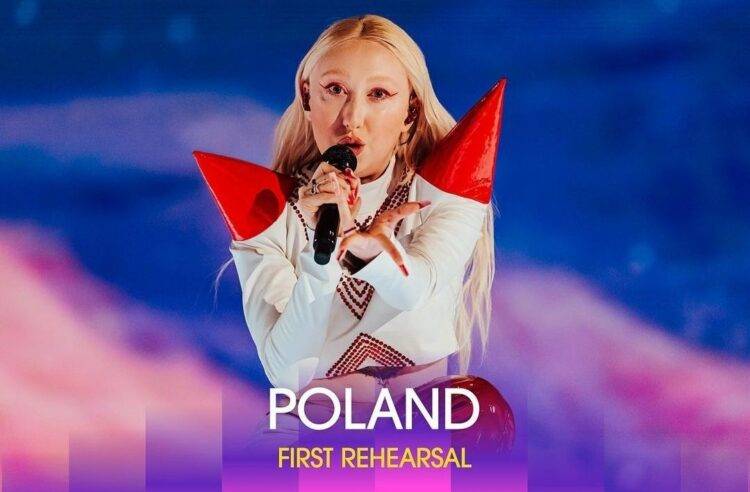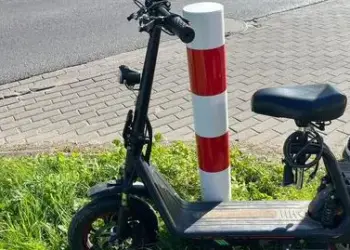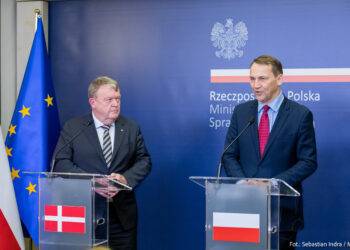Poland’s representative Luna did not advance to the grand finale of the 68th Eurovision Song Contest, leaving her fans and the Polish Eurovision community in shock after her captivating performance in the first semi-final on May 7. Despite her best efforts with the song “The Tower,” she was unable to secure one of the coveted spots in the grand finale, losing out to competitors from Serbia, Portugal, Slovenia, Ukraine, Lithuania, Finland, Cyprus, Croatia, Ireland, and Luxembourg.
- More News from Poland on our Homepage.
- Sign up to our Newsletter
Following the results, reactions flooded social media, with both supportive and critical voices emerging. Many fans expressed their admiration for Luna’s performance. “You’re wonderful and you gave it your all,” wrote one supporter on social media, while another commented, “Luna, you left your whole heart on that stage, and it showed! I’m surprised by the results because I was sure you’d make it to the finals!” Musician Ralph Kamiński also weighed in, saying, “After watching all of tonight’s performances, I think Luna deserved to be in the final.” Supportive messages included, “The whole performance was really great, and you represented us superbly,” and “You were amazing, Luna. Never give up and always fight for your dreams.”
However, not all reactions were positive, with some viewers criticizing Luna’s vocal performance and overall presentation. “I think her voice sounded like she wanted to, but couldn’t,” one user remarked, while another added, “Although the scenery was really good, the singing unfortunately ruined it. She sang too softly and seemed to want to avoid those high notes.” Other commentators pointed out technical issues, such as the choice of handheld microphones rather than headsets. “Can someone explain to me why Luna couldn’t have a microphone pinned to her face? Instead, she had to hold it, which made her voice escape so often?” questioned one viewer.
Apart from the vocals, some social media users criticized Luna’s choreography and costume choices. “Who dressed her?” asked one user, while another added, “It’s neither nice nor pleasant to see international songs that have nothing to do with Poland and its beautiful folkloric assets in the form of music and dance.” Despite the critiques, many remained optimistic about Luna’s future, urging her to continue pursuing her musical career.
Luna’s participation in Eurovision was secured after winning the Polish national selection organized by TVP (Telewizja Polska). The five-member committee consisted of Łukasz Pieter, Michał Hanczak, Kasia Moś, Konrad Szczęsny, and Piotr Klatt. Luna topped the national selection with 34 points, edging out Justyna Steczkowska’s “WITCH-ER Tarohoro,” which earned 33 points. However, despite her early success, Luna fell short in the competitive Eurovision semi-final.
The second semi-final took place on May 9, with representatives from 16 countries vying for a place in the final, including Malta, Albania, Greece, Switzerland, the Czech Republic, Austria, Denmark, Armenia, Latvia, San Marino, Georgia, Belgium, Estonia, Israel, Norway, and the Netherlands. France, Spain, and Italy, as members of the ‘Big Five,’ are guaranteed places in the final alongside Sweden, the host nation.
Luna’s Eurovision journey may have ended earlier than hoped, but her performance has sparked a vibrant conversation around Poland’s representation in the contest. While opinions are divided on her vocal delivery and stage presentation, the overwhelming consensus remains that Luna gave it her all and represented her nation with passion. As Poland looks ahead to future Eurovision contests, the selection process and strategies will undoubtedly be scrutinized to ensure that the next representative can capture hearts across Europe.


















